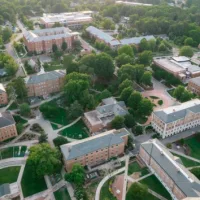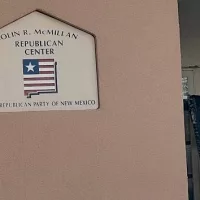
(NORTH CAROLINA) — Saint Augustine’s University in Raleigh, North Carolina, is in an ongoing battle with the IRS and the Southern Association of Colleges and Schools Board of Trustees after the historically Black school’s previous finance department “mismanaged” a $34 million budget, according to university officials.
Historically Black Colleges and Universities (HBCUs), both public and private, have been underfunded due to lower endowments, less alumni support and state and federal underinvestment.
Recently, HBCUs have faced several challenges. During a funding crisis, Tennessee State University had its board stripped away in a complete overhaul by state lawmakers. In Mississippi, lawmakers proposed a bill that would have shut down the state’s only public HBCUs.
Now teachers and staff at Saint Augustine’s have not received a salary for three months following the institution’s plunge into debt of $32 million. The dire financial situation places the university at a high risk of losing its accreditation, a crucial aspect of its credibility and reputation.
“We’re still unpacking, but the biggest piece starts with our missing audits from 2021, 2022 and 2023,” Saint Augustine’s Interim President Marcus H. Burgess told ABC News in an interview in March. “A $34 million budget. There was only $130,000 that can be accounted for. So a new finance team was brought in, and they “literally had to recreate all of those financials. And it took them about two years to do that.”
Christine Johnson McPhail, the previous president of Saint Augustine’s University (SAU), was terminated on Dec. 3, 2023, when the Southern Association of Colleges and Schools Board of Trustees voted unanimously to remove Saint Augustine’s status as an accredited institution. On Feb. 20, the school had an appeal hearing with the Board of Trustees. The committee that heard that appeal rendered the decision to fire McPhail.
ABC News contacted McPhail’s attorney, who declined to speak on the financial issues at SAU.
“We are not at liberty to discuss the financial situation at Saint Augustine’s University. It is our position that Saint Augustine’s termination of Dr. McPhail’s employment was unrelated to the school’s financial situation.”
According to the Southern Association of Colleges and Schools Commission on Colleges (SACS), the university’s accreditation is currently on hold due to financial and governance issues. The institution has been put on probation and, in response, the university sent a letter of arbitration to SACS on Mar. 11. The school will retain its accreditation until the arbitration process is complete, according to a statement on its website.
“It gave us 90 days. So, within that 90 days, we still accredit it,” Burgess said. “It allows our seniors to graduate from an accredited institution.”
If SAU loses its accreditation, 85 percent of its students will lose their financial aid.
“Transferring is just not something I would have ever thought,” SAU student Tinaya Eason said. “And I’m still thinking about it. Nothing is really finalized right now.”
SAU needs to raise nearly $32 million to pay its debts and remain operational.
The university received a tax lien of nearly $7.8 million from the IRS for unpaid payroll taxes dating back to 2020, putting the university’s financial stability at risk.
Due to the school debt, Burgess and his staff have been working without compensation since February.
“Staff have not been paid, but they still fight for this institution,” Burgess said. “They still teach our students. They want to see this class get to the graduation day, but they are hurting.”
Despite an outpouring of support from alumni and community donations, the amount raised is hardly enough to solve the problem.
“We need capital, and need cash,” Burgess said. “I don’t want to have to sell any of our land. In the Black community and African American community, we know how hard it’s been to get this land.”
“I’m forever reminded of my senior year; $1,200 is what I needed to graduate,” Burgess said. “One of our board members, Barrett Jackson, was on campus and handed me an envelope, and it was several checks from his Sunday school class. And he told them about this young man at Claflin University who just needed a chance. I’m a living testimony to why you should always look to help somebody. We need that chance.”
Copyright © 2024, ABC Audio. All rights reserved.















